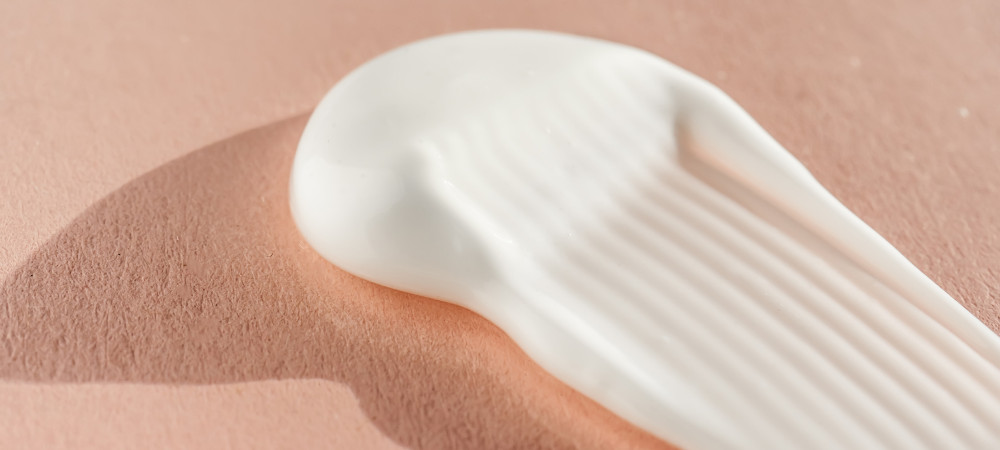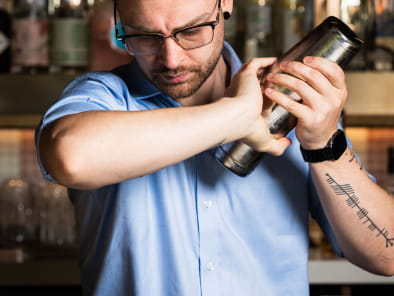May 30, 2025
The Importance of SPF in the Beauty Industry

We’d like to introduce you to Mhairi, our Treatments Recruitment Supervisor and a valued member of the beauty team here at Ragdale Hall Spa. With a wealth of experience in skincare and treatments, Mhairi shares her expert insight into the importance of daily sun protection. In this blog post, she explores why SPF is essential for maintaining healthy skin, how to select the right formulation for different skin types, and the important role SPF plays in our treatments.
In today’s beauty industry, professionals deliver more than just aesthetic results, they must promote long-term skin health and educate clients on preventative care. One of the most crucial elements in both skincare and beauty treatments is SPF.
Despite being readily available, it’s often misunderstood or underused, which is why beauty therapists have a unique responsibility to highlight its significance.
Understanding SPF and UV Radiation
SPF measures a product’s ability to protect the skin from UVB rays, which are primarily responsible for sunburn and play a significant role in skin cancer development. However, many people don’t realise that UVA rays which penetrate deeper into the skin, are equally harmful. UVA exposure leads to premature ageing, including fine lines, hyperpigmentation, sagging, and uneven texture. Worse still, UVA rays can penetrate glass, meaning sun damage can occur even indoors or while driving.
Broad-spectrum SPF is essential because it protects against both UVA and UVB rays. Beauty professionals should ensure clients understand this distinction and choose products accordingly, we love Medik8’s Advanced Day Ultimate Protect.
The Role of SPF in Professional Treatments
As part of any advanced beauty treatment, such as facials, chemical peels, and microdermabrasion, SPF becomes even more important. These treatments remove the outer layer of dead skin, revealing fresher, more sensitive skin underneath. Without adequate protection, the skin is highly susceptible to: Sunburn, hyperpigmentation, increased sensitivity, accelerated ageing and post-treatment complications
Failing to apply SPF after these treatments not only jeopardises the client’s results but also the therapist’s reputation and professional responsibility. Most reputable training programmes and industry standards consider SPF a non-negotiable part of post-treatment care.
Incorporating SPF into Daily Beauty Routines
Many beauty clients believe SPF is only necessary during summer or while on holiday. In reality, daily SPF application is essential, even on overcast days or in winter. UV rays are constant and can cause cumulative damage over time.
Modern skincare makes this easier than ever. SPFs are now included in moisturisers, serums, primers, and even setting sprays. However, most makeup with SPF offers limited protection due to the low concentration and small amounts typically applied.
For full protection, recommend clients use a dedicated sunscreen of at least SPF 30, applying generously and reapplying every two hours if exposed to sunlight. Products with zinc oxide or titanium dioxide are ideal for sensitive or post-treatment skin.
SPF and Skin Types
Every skin type and tone needs SPF. One common myth is that darker skin tones don’t need sun protection—this is false. While melanin offers some natural protection against UVB rays, it does not shield against UVA damage. People with darker skin are also more prone to hyperpigmentation, which can worsen without proper sun protection.
Professionals should be ready to recommend SPF products that suit:
- Oily or acne-prone skin: Lightweight, non-comedogenic formulas
- Dry or mature skin: Moisturising SPFs with anti-ageing benefits
- Sensitive skin: Mineral-based sunscreens with calming ingredients
- Darker skin tones: Clear or sheer formulations that don’t leave a white cast
SPF in the Beauty Curriculum
For students studying beauty therapy, understanding SPF goes beyond product knowledge, it’s about:
- Client education and communication
- Treatment planning and aftercare
- Skin health and long-term results
Being able to explain the science behind SPF, debunk common myths, and confidently recommend the right product enhances a student’s professional credibility. It’s also an important consideration for insurance, licensing, and gaining recognition as a qualified therapist.
SPF and Business Reputation
Today’s clients are more informed and health conscious. Offering thorough sun care advice can set a salon or therapist apart in a competitive market. It shows a commitment to ethical practice, long-term client wellbeing, and professional excellence.
Promoting SPF use also presents a business opportunity, many salons successfully retail SPF products as part of their skin health offerings. When clients trust your recommendations, they’re more likely to purchase products directly from you, boosting client satisfaction and income.
Final Thoughts
SPF is not just a skincare product, it’s a daily essential that protects the skin’s health, appearance, and resilience. In the beauty industry, it is a marker of professionalism, responsibility, and long-term client care.
Whether you’re a student, educator, or experienced therapist, embracing and promoting SPF is a simple yet powerful way to elevate your practice and protect your clients’ most valuable asset, their skin.
More Ragdale News
Personal Training at Ragdale Hall Spa
Feb 04, 2026
Achieving real, lasting results from exercise doesn’t have to mean endless workouts or…
How to Create a Calming At-Home Spa Evening
Feb 02, 2026
In a world that moves fast, slowing down can feel like a luxury. But at Ragdale Hall Spa,…
Cocktail of the month – Bergamot Sour
Jan 08, 2026
We’re starting the year with a cocktail designed to reset the palate after the rich,…







Leave a Reply